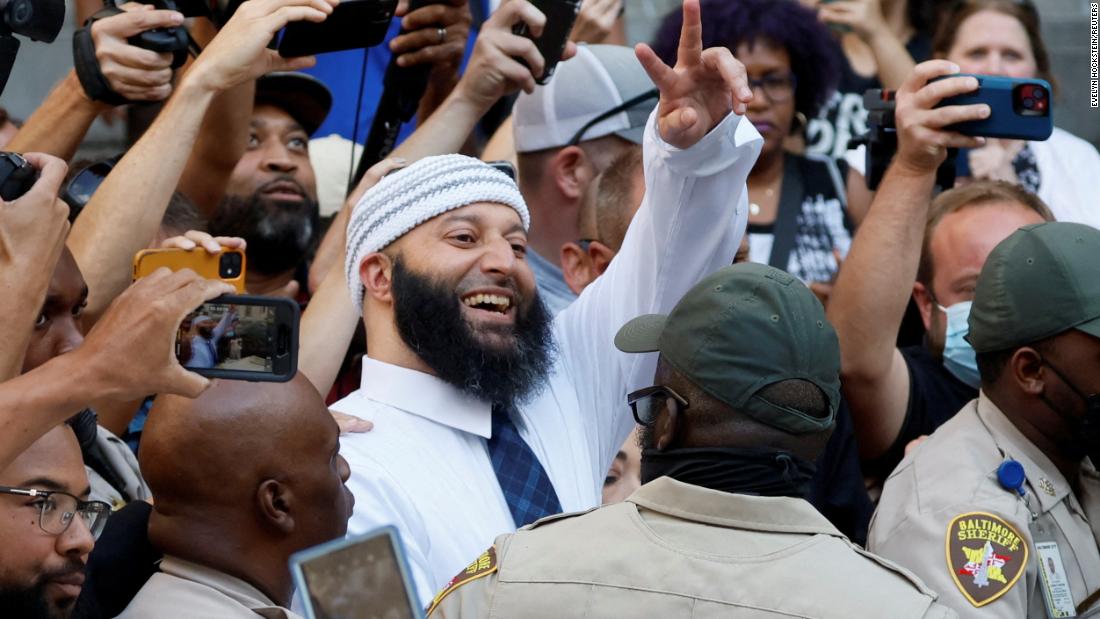Not only did “Serial” bring Syed and his case to the attention of tens of millions of listeners when it aired in 2014; but it fed ongoing public interest in the case and perhaps even bolstered Syed’s ability to attract and keep top-notch lawyers.
The vast majority of criminal defendants are not so lucky. And yet in the end, it appears that despite the outsize public interest, prosecutors never took a hard look at Syed’s case until an application was made pursuant to Maryland’s Juvenile Restoration Act. (Syed was 17 at the time of the murder.)
In the meantime, Syed served 23 years for a crime that it appears he did not commit, and virtually all of the facts that have now caused prosecutors to reach that conclusion were known — or reasonably could have been known to them — back in 1999 when Syed was tried.
There must be — and there is– a better way to ensure the meaningful review by prosecutors of questionable convictions. What is mystifying is why it was not utilized here.
As a former prosecutor, I eagerly listened to Serial’s coverage of the Adnan Syed case when it aired. Even for people not intimately familiar with the criminal justice system, it had all the ingredients that make true-crime such a popular genre: a young and likable victim, her high school boyfriend as the suspect and a grisly killing, coupled with a tenacious and charismatic reporter exploring significant questions about whether in fact prosecutors had convicted the right person.
The podcast exposed the Syed case as weak and mostly circumstantial, but by itself apparently did not spur prosecutors to re-examine it. Instead, the hard look inside the Baltimore City State’s Attorney’s Office came only after passage of a new law in Maryland that allows courts to reconsider sentences of defendants convicted as juveniles who have served at least 20 years of a sentence and are not a current danger to the community.
After the law took effect, Syed’s counsel promptly requested that prosecutors review Syed’s case to see whether they would agree to a sentencing reduction, and that review uncovered numerous problems with the original case that were apparent from a review of their files, including evidence pointing to two other credible suspects who had not been properly investigated, exculpatory information that had not been provided to the defense (which is a major constitutional violation in its own right).
The review also found significant reasons to doubt the veracity of the government’s key witness, as well as information that substantially undermined the reliability of the cellphone data prosecutors had used to bolster their case.
In short, when examined over the course of several months last year and this year, the case fell apart, leading to the prosecutor’s motion to vacate the conviction. Technically, prosecutors have 30 days to decide whether to seek a new trial. (They have not declared Syed actually innocent and are waiting on DNA evidence results before deciding on their next step) but their agreement that Syed could be released without bail, coupled with their admissions about his case and their statements about the ongoing investigation into other suspects, makes a new trial exceedingly unlikely.
While this is obviously a positive thing for Syed, it comes many, many years too late. And it is also difficult for the loved ones of the victim, Hae Min Lee, to learn that her murder is now once again unsolved, and may stay that way. While prosecutors say they are continuing the investigation, cases this old are extremely challenging for the obvious reasons: evidence disappears or deteriorates, and memories fade.
All defendants are afforded multiple layers of appeals and other challenges to their convictions, but the legal standards for overturning a conviction are hard to meet — and in this case only the prosecutors had access to the relevant information.
So, aside from the obvious solution of doing a better job in the first place to ensure a competent and thorough investigation, compliance with all discovery rules and the presentation of reliable evidence, what can prosecutors do better in cases where significant questions are raised after the fact?
One answer is meaningful conviction review at the prosecutor’s office. Unlike sentencing review processes, which are not designed to prompt a full investigative review, conviction review can lead to a full re-examination of cases for which a colorable claim is advanced, and defendants need not wait 20 years before applying.
In recent years, prosecutors around the country have set up such units, and while the units vary greatly in their standards and resources, they collectively have led to hundreds of convictions being vacated. (I participate in this process for two District Attorney’s Offices, in Kings County and Suffolk County, New York, as part of an outside review panel that provides advice to the District Attorney about individual cases.)
Ironically, according to its website, the Baltimore City State’s Attorney’s Office has such a unit, so it’s not clear why the thorough look at Syed’s case that finally took place didn’t happen earlier under the auspices of conviction review. Syed clearly met the unit’s requirement of asserting his actual innocence, and it’s difficult to imagine that his lawyers, as aggressive as they have been on his behalf, would not have filed an application for that kind of review.
Had Syed’s case been evaluated by an office that is serious about and dedicated to meaningful conviction review, the realization that his case did not hold together on closer inspection may have come years ago. Robust conviction review may not have helped Adnan Syed, but could help scores of similarly-situated defendants down the road.







